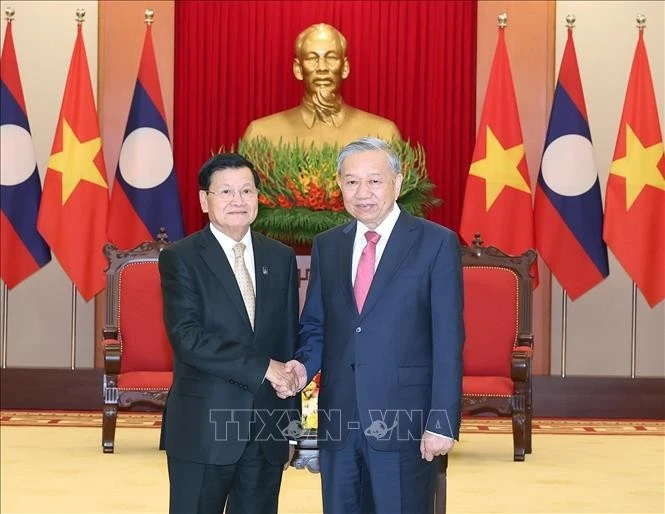Copyright scmp

Digital currency is emerging as a powerful, disruptive tool in global geopolitics, fundamentally reshaping the financial battlefield in times of conflict, according to a commentary in a key Communist Party publication. Nations are increasingly leveraging digital assets to bypass international sanctions, mobilise vital resources and maintain economic stability during regional conflicts, according to the author of an article published on Monday in Study Times, the official newspaper of the Central Party School. Digital currencies are issued by central banks and pegged to real-world assets such as fiat currencies or commodities as well as cryptocurrencies issued by the private sector, such as bitcoin, which is powered by blockchain technology. “In multiple global geopolitical conflicts in recent years, digital currencies have begun to enter the realm of military applications, providing fast, secure and anonymous transaction features that lay the foundation for the militarisation of digital assets,” the article said. The article’s author, Xue Zichen, said it was “worth noting” that the 2025 US National Defence Authorisation Act authorised a Pentagon initiative known as the Defence Blockchain Internal Testing Programme, which meant that digital currencies could become a “significant strategic tool for future financial defence”. While Xue’s title was not disclosed, the author seemed to be an active contributor to state media, including party mouthpiece People’s Daily. “The implications for the global geopolitical landscape and the future direction of the international financial system cannot be overlooked,” Xue added. The commentary comes as China is increasingly wary of the potential for the secure messaging network for international bank transfers, known as Swift (Society for Worldwide Interbank Financial Telecommunication), to be weaponised in the event of a financial war with the US or other Western countries. Beijing fears that in a geopolitical escalation the US could leverage Swift to impose sanctions that would isolate Chinese banks and disrupt the country’s trade and capital flows. The concern has driven China to promote digital currency as a way to reduce its reliance on Swift and mitigate the risks of being frozen out of financial transactions. China has also been mulling the issuance of stablecoins, a type of cryptocurrency designed to maintain a stable value by being pegged to fiat currencies or commodities. In May, Hong Kong’s legislature passed a stablecoin bill that established a licensing regime for fiat-referenced stablecoin issuers in the city. However, progress has been hampered by concerns over regulatory challenges. “Digital currencies can withstand the resilience test of wartime markets, sustaining economic operations and civilian livelihoods in conflict zones, which is crucial for protecting funds during armed conflicts,” Xue wrote. If physical banking infrastructure was paralysed or subjected to sanctions, digital currencies could serve as covert channels for cross-border transactions and military trade settlements, Xue said, citing cryptocurrencies issued by sanctioned Venezuela and Iran, which are pegged to petroleum and gold respectively. “Wartime funds typically originate from national budgets and are used for military expenditure and equipment purchases, but these funds are vulnerable to enemy monitoring and tracking during conflicts,” Xue wrote. “The blockchain technology of cryptocurrencies decentralises funding sources and, through anonymisation, reduces the likelihood of enemy blockades or interference, lowering the risk of funds being tracked or intercepted. “This can alter the course and outcome of wars, laying the foundation for the contemporary militarisation of digital currencies.” While it supports a centralised digital yuan to boost financial autonomy, China strictly regulates private cryptocurrencies, considering them a risk to financial stability and state authority. However, Beijing does advocate blockchain technology development. Chinese President Xi Jinping seems to be a fan himself. In 2019, he held a Politburo group study session on blockchain tech, urging more progress towards innovation and industrial transformation. Also in 2019, a commentary in the PLA Daily argued that the Chinese military could use blockchain technology to manage personnel data, boost training and mission performances, and incentivise soldiers. The three authors from the People’s Liberation Army Academy of Military Sciences recommended at the time that “areas of lower-risk”, such as military logistics and human resources, could be selected for initial trials to explore the “environment requirements, operational rules and supporting mechanisms” for blockchain military applications. They cautioned, however, that the smaller scale of military blockchains would reduce system security. Under the principles of blockchain technology, an attacker must simultaneously modify more than half of the nodes to successfully tamper with blockchain data. The more nodes there are, the more difficult it is for an attacker to compromise or destroy the blockchain. Blockchains used in military applications would typically have far fewer nodes than civilian systems based on the internet. During wartime, in the face of large-scale cyberattacks launched by adversaries concentrating significant computational resources, it remained possible for more than half of those nodes to be modified, they wrote. In the US, pilot programmes have been launched in select areas in the Department of Defence, including supply chain tracking and secure R&D data sharing. Reports earlier this year indicated the US was testing the use of blockchain under simulated wartime scenarios to evaluate resilience against cyberattacks.



